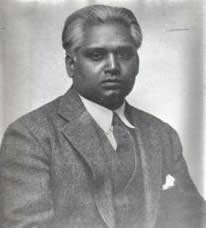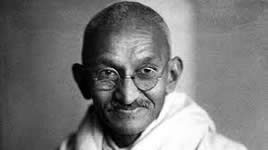A Letter to a Hindu: Tolstoy and Indian independence movement
 Taraknath Das, an anti-British, Indian revolutionary & internationalist scholar
Taraknath Das, an anti-British, Indian revolutionary & internationalist scholar
"A Letter to a Hindu" was a letter written by Leo Tolstoy to Tarak Nath Das on 14.12.1908. The letter was written in response to the letters sent by Das, seeking support from the famous Russian author and thinker for India's independence from British colonial rule. The letter was published in the Indian newspaper Free Hindustan. The letter caused the young Mohandas Gandhi to write to the world-famous Tolstoy to ask for advice and for permission to reprint the Letter in Gandhi's own South African newspaper, Indian Opinion, in 1909. Mohandas Gandhi was stationed in South Africa at the time and just beginning his lifelong activist career. Gandjiji then translated the letter himself, into his native Gujarati.
In "A Letter to a Hindu", Tolstoy argued that only through the principle of love could the Indian people free themselves from colonial British rule. Tolstoy saw the law of love espoused in all the world's religions, and he argued that the individual, nonviolent application of the law of love in the form of protests, strikes, and other forms of peaceful resistance were the only alternative to violent revolution. These ideas ultimately proved to be successful in 1947 in the culmination of the Indian Independence Movement.
 Gandhiji
Gandhiji
This letter, along with Tolstoy's views, preaching, and his book "The Kingdom of God Is Within You", helped to form Mohandas Gandhi's views about nonviolent resistance.
|